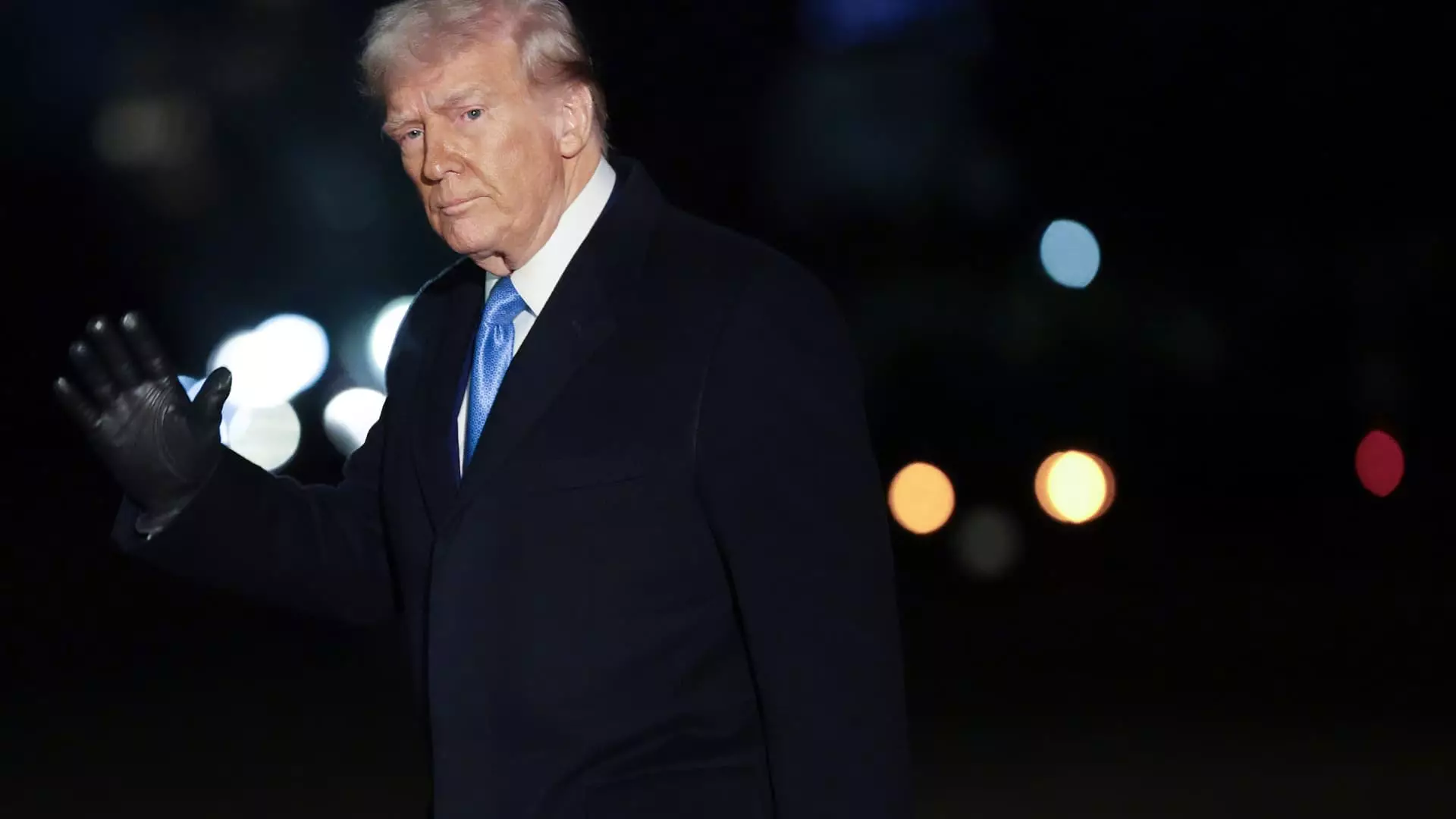In a noteworthy judicial development, a federal judge in Maryland has temporarily halted the execution of President Donald Trump’s directive aimed at dismantling diversity, equity, and inclusion (DEI) programs across federal agencies and among federal contractors. U.S. District Judge Adam Abelson’s ruling pivots on constitutional grounds, specifically the First Amendment, which guarantees freedom of speech. The targeted federal mandates reflect a broader ideological battle over DEI initiatives that have gained traction in recent years, particularly in light of social justice movements.
Judge Abelson’s decision underscores significant concerns regarding the potential infringement on free speech rights, as expressed by the plaintiffs— the city of Baltimore along with three advocacy groups. The federal judge articulated that efforts to foster inclusion have enjoyed broad legal support for decades, thus inherently challenging Trump’s claim that these programs cause unlawful discrimination. Abelson stated that the plaintiffs demonstrated “irreparable harms,” pointing to a pervasive “chilling” of constitutionally protected speech resulting from the administration’s orders. This chilling effect raises critical questions about who has the authority to define and regulate concepts of equity and inclusion in organizational contexts.
The implications of Abelson’s ruling extend beyond immediate halting of Trump’s directives. The decision also casts doubt on actions already initiated by the Trump administration, such as the shuttering of DEI offices and the termination of staff involved in diversity initiatives. By refusing to recognize the validity of the president’s orders, Judge Abelson raises the stakes considerably, suggesting that not only could these actions be unconstitutional, but they may also be fundamentally misaligned with evolving societal norms surrounding equity and inclusion.
The White House’s silence following the ruling may reflect an acknowledgment of the ruling’s significance or could indicate strategic considerations as the administration weighs its next moves. The ruling was met with approval by organizations advocating for civil rights and inclusivity, such as Democracy Forward. Their President, Skye Perryman, argued that Trump’s actions not only breach constitutional provisions but also impede crucial dialogue around diversity and equity.
Trump’s vision for DEI programs has sparked a conservative backlash, framing these initiatives as discriminatory in themselves. Following the social upheaval of 2020, DEI efforts surged as companies and institutions began to recklessly address long-standing inequities, prompting conservative factions to assert that such measures reverse progress rather than yield equality. This political polarization frames the debate surrounding DEI not merely as policy discussion but as a deep philosophical divergence about the American values of fairness, diversity, and inclusion.
Moreover, the argument that DEI initiatives are necessary to rectify historical injustices cannot be understated. Civil rights advocates frequently assert that these measures are essential for ensuring equitable opportunities in a nation where systemic disparities still exist. The dichotomy between the conservative viewpoint and progressive advocacy encapsulates not only differing opinions on policy but fundamentally opposing views of America’s moral and ethical responsibilities.
Moving forward, the state of DEI programs at federal agencies remains precarious given the existing judicial framework. Should the rulings in favor of the plaintiffs solidify, organizations may find renewed leeway to implement and enhance their DEI strategies without the threat of federal retribution. However, Trump’s continued interest in reshaping the national dialogue around inclusion may lead to further legal battles, which will likely engage broader public sentiment around issues of equity and representation.
Ultimately, the intersection of law, politics, and social movements continues to dictate the fate of DEI initiatives. As society grapples with its historical context and seeks a more inclusive future, judicial guidance will play a pivotal role in navigating the evolving landscape of diversity and equality policies. The Maryland ruling is a significant step in protecting those efforts within the framework of constitutional rights, enforcing the notion that equity is not just a policy goal but a fundamental American value.


Leave a Reply